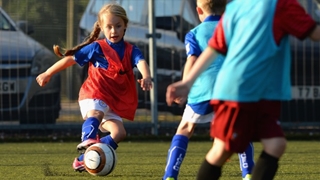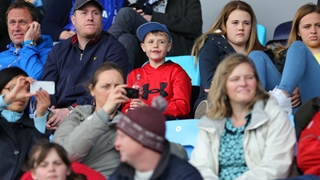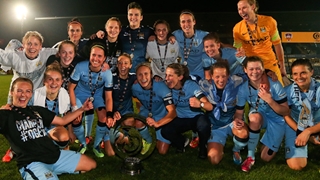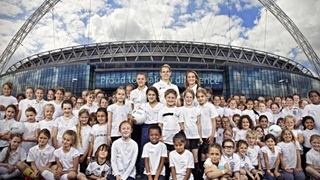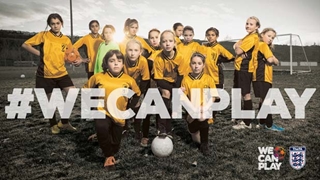
Despite its status as the largest team sport for girls and women in the country, peer-to-peer pressures, gender stereotyping and even the derogatory results of internet searches all contribute to a perpetuation of a negatively distorted image on the women’s game – which research has revealed is holding back greater participation in football.
- 4 out of 5 girls playing recreational football don't feel confident in doing so
- 81% of girls think football is suitable for boys. The figure drops to 56% who think it is suitable for girls.
So, on the eve of the start of England’s Women’s World Cup campaign, The FA has released new data to tackle the issue head-on - lifting the veil on the attitudes about football among 7-11 year old girls and their parents.
Alarmingly unlike tennis and netball, among girls surveyed, only just over half felt that football was a game for them. Even among young girls that do play football, four out of five of them don’t feel confident in doing so.
The attitudes of parents of girls from this age group are also telling. Mums and dads are far less likely to encourage daughters to play football than sons – and significantly, they are also more likely to discourage daughters from playing than male children.
And beyond gender stereotyping concerns, The FA is seeking to spark wider debate about perceptions of women’s football.
‘We Can Play’ is aiming to canvass the support of 100,000 girls and parents as part of its drive to boost participation.
Kelly Simmons, The FA’s Director of the National Game and Women’s Football said: "We need to ask ourselves - why do these perceptions still pervade?
"The FIFA Women’s World Cup is currently taking centre-stage and domestically, the FA Women’s Super League continues to grow. The profile and professionalism of the women’s game has never been greater.
- 95% of boys aged 10 play football compared to only 41% of girls
- Only 3% of mini soccer teams are girls only
"The FA is doing its part to ensure the game is an attractive mass participation sport for girls and women, but we should ask why does society allow antiquated attitudes to persist?
"Let’s have an open and honest discussion – in doing so we want to shatter the myth that football is for boys, and give thousands of girl the opportunity to enjoy our beautiful national game and all the benefits of taking part in team sports.
"Increasing girls’ confidence that football is a sport for them and showcasing positive role models - many of whom will be appearing in our screens when England take on France – are crucial."
Join The FA in supporting girls football.
1. Sign up to show your support and receive our We Can Play newsletter – we’ll keep you updated on all things girls' football related
2. Share your girls' football stories with the hashtag #WeCanPlay
Thanks for your support, and if you want to find your nearest club just click here.
Read more at TheFA.com/wecanplay


